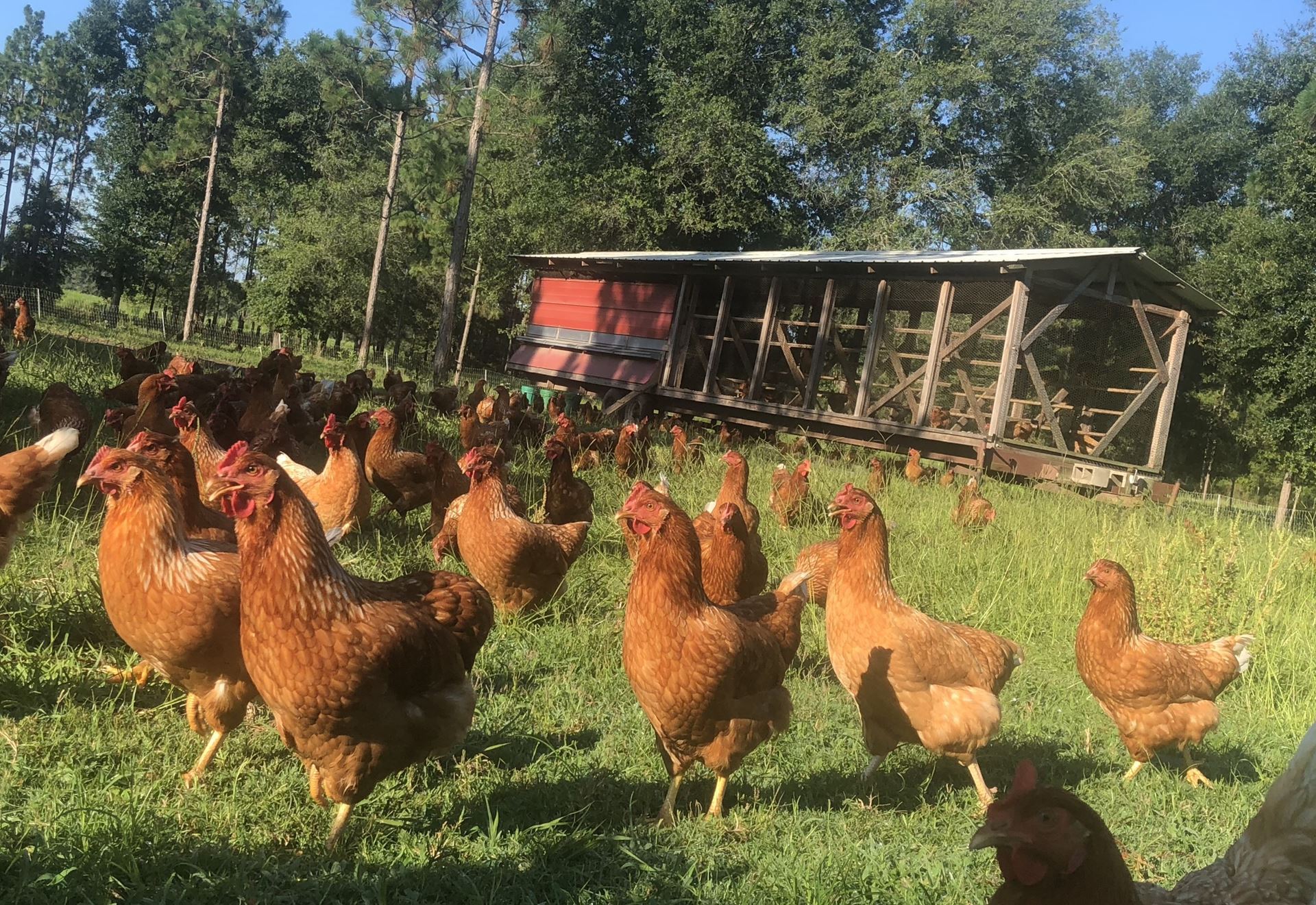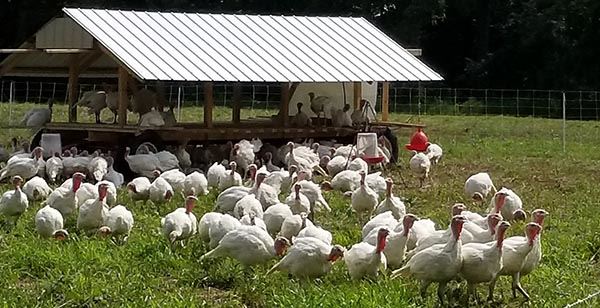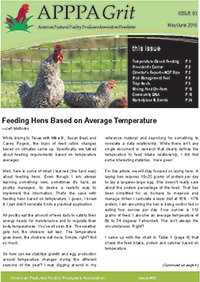Highly Pathogenic Avian Influenza (HPAI) Resource Center for Pastured Poultry GrowersAPPPA is your go to resource for understanding the avian influenza threat in a pastured poultry context.
Pastured poultry producers often wonder if they're at risk and what they should do. They are bombarded by advice and guidance that conflicts with their model, such as, bring all your birds inside. That advice is given from a intense confinement perspective by people who have no idea what it means to be pasture raised. HPAI is real and it affects poultry, so that means you bear some risk, regardless of how you raise your birds. We argue that the pastured model presents significantly less risk than an intensely confined commercial model, and that it doesn't make sense for you to bring your birds inside. Like any other part of our pastured poultry business, we encourage you to be informed so you can make the best decision you can for your farm. These resources will help you do that. Risk in Perspective
We need to start with the simple position. All poultry is susceptible to HPAI. If you have poultry they could contract HPAI, and this transcends production models. Being susceptible, however, doesn't equate to being sick. Nor should we assume that exposure leads to sickness. The virus causes the most damage to intensely confined flocks commonly found in the commercial poultry industry. A relative small number of backyard birds have also been affected. But backyard is not synonymous with pastured and the commercial flocks, as USDA is reporting them, do not include any pastured flocks. That means if you want to assess your risk, as a pastured poultry producer, you're going to need to apply all the data and insights to your model. In the 2014-2015 outbreak the affected sites looked like this.
The outbreak in 2022 displayed similar trends, however, the number of backyard flocks identified as HPAI positive in 2022 has risen sharply over the 2015 numbers. The USDA detections actually show more backyard flocks than commercial flocks. As of August 25, 2022:
USDA reporting on what is a backyard flock versus a commercial flock is convoluted and is written with international trade in mind. When you look at the list of reported detections, you'll even find various sites defined as "non-poultry." The risk is two sided. How likely is it that your pastured flock will become infected, and if your pastured flock does become infected, what's the risk that you'll spread it to other farms. In 2016, USDA APHIS deemed smaller farms of all types to be less risk than the more densely and intensively stocked commercial operations (see the exemption discussion in this interim indemnity rule). One key difference from USDA and other state organizations from 2015 to the 2022 outbreak is that in 2015, the messaging from USDA tried to transfer the risk of disease and transmission to non-commercial flocks. The available data refuted this notion. In 2022, the messaging was friendlier and shifted to ensure non-commercial flocks knew they were at risk and that everyone just wanted to help. Perhaps this friendlier approach yielded more people who were looking or perhaps the strain in 2022 was more virulent. Either way, this doesn't really change the overall risk. Less than 1% of the birds killed because of HPAI in 2022 were non-commercial flocks. Track the 2022 OutbreakArticlesThe articles linked below were written in 2015, but they are still relevant. They explain the pastured poultry advantage. Clinical SignsIn the Pastured Poultry Talk episode "Highly Pathogenic Avian Influenza and Pastured Poultry," Dr. Wood shares these clinical signs that could indicate HPAI. However, it's important to understand that these signs are not definitive, as other diseases may present the same signs.
The only way to confirm HPAI is through laboratory testing, so you should call your local state veterinarian office or call the USDA hotline at 866-4USDA-WS. "Digging into Bird Flu Threat to Pastured Poultry" is a an interview Mike Badger did with Dr. Chrislyn Wood who is a veterinarian with USDA APHIS. They explore the risks of HPAI at large and in the context of pastured poultry. You can listen to it anywhere you get your podcasts or through this YouTube video. USDA Resources
Receive Free PDF Issue of APPPA Grit Newsletter
| Upcoming eventsMembership At a Glance
Consumer Guide
|



 APPPA publishes a weekly newsletter to bring tips, news, and thoughtful commentary about pastured poultry to your inbox. Subscribe and receive a free issue of our bi-monthly trade newsletter, APPPA Grit. We mail APPPA Grit to all paid members bi-monthly.
APPPA publishes a weekly newsletter to bring tips, news, and thoughtful commentary about pastured poultry to your inbox. Subscribe and receive a free issue of our bi-monthly trade newsletter, APPPA Grit. We mail APPPA Grit to all paid members bi-monthly.